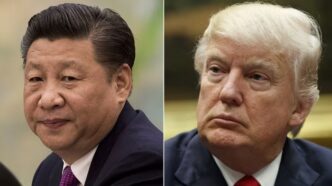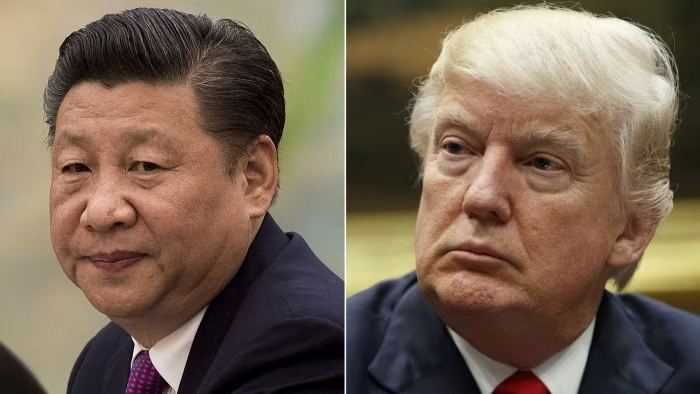The unexpected rise of Chinese AI startup DeepSeek earlier this year sent shockwaves through the global tech industry, wiping out over $1 trillion from U.S. tech markets in a single blow. Now, U.S. policymakers are stepping in, determined to slow China’s rapid progress in artificial intelligence and quantum computing.
In a major move on Tuesday, the U.S. Department of Commerce announced it had added more than 80 companies to its export blacklist. Over 50 of those firms are based in China. This marks the first significant expansion of the Entity List under the Trump administration and signals a renewed effort to block Beijing’s access to critical high-performance computing and next-generation technologies.
OpenAI’s DeepSeek Warning Fuels U.S. Crackdown
The decision comes just days after OpenAI CEO Sam Altman publicly urged the U.S. government to ban AI models developed by Chinese companies. In a policy proposal, Altman raised concerns over DeepSeek, labeling it as “state-controlled” and warning of potential security threats and intellectual property theft.
OpenAI specifically flagged DeepSeek and several other Chinese open-source models as high-risk, citing their alignment with China’s broader tech ambitions.
According to the Commerce Department’s statement, the Bureau of Industry and Security (BIS) blacklisted entities from China, the United Arab Emirates (UAE), South Africa, Iran, Taiwan, and other countries for activities deemed harmful to U.S. national security and foreign policy.
China’s AI and Quantum Push Faces U.S. Export Barriers
The blacklist effectively blocks U.S. companies from supplying technology to the listed organizations without government approval. Many of the Chinese firms targeted are believed to be working on AI chips, supercomputers, and quantum tools with potential military applications.
Two firms were accused of funneling restricted U.S. technology to Huawei and its chip-making arm HiSilicon, both of which remain under heavy U.S. sanctions.
Additionally, the U.S. sanctioned 27 Chinese entities for acquiring American technology to fuel military modernization efforts and flagged seven others for their roles in advancing China’s quantum computing programs.
Inspur Group Among Repeat Offenders
The move also added six subsidiaries of Inspur Group, a major Chinese cloud computing player already blacklisted during the Biden administration. China’s Foreign Ministry swiftly condemned the action, calling it a provocative escalation and accusing Washington of using national security as a blanket excuse, according to Reuters.
Trade expert Alex Capri, author of Techno-Nationalism: How It’s Reshaping Trade, Geopolitics, and Society, described the blacklist expansion as a growing effort to target third-party intermediaries and global transit points that help Chinese firms evade restrictions.
“Expect U.S. officials to ramp up efforts to track and block smuggling of advanced semiconductors, especially those made by Nvidia and AMD,” Capri told CNBC. He noted that loopholes have long allowed Chinese companies to bypass export controls and access critical U.S. technologies through indirect channels.
Rising Tech Tensions Fuel Aggressive Export Controls
This aggressive stance comes as tensions between Washington and Beijing reach new heights. The Trump administration has already slapped China with increased tariffs. Now, it’s zeroing in on restricting tech exports — particularly those with military potential.
Startups like DeepSeek, which recently overtook ChatGPT on the App Store, are accelerating China’s shift towards open-source, low-cost AI models. This contrasts sharply with the expensive, proprietary systems dominant in the U.S. market.
The policy, often described as “small yard, high fence”, aims to block a narrow range of critical technologies while allowing routine trade in less sensitive sectors.
U.S. Sends a Strong Warning on Tech Misuse
“We’re sending a clear, resounding message,” said Jeffrey I. Kessler, Under Secretary of Commerce for Industry and Security. “The Trump administration will act decisively to stop U.S. technologies from being misused in high-performance computing, hypersonic weapons, military aircraft training, and UAVs that threaten our national security.”
He added, “The Entity List remains one of our most powerful tools to identify and block foreign adversaries seeking to exploit American technology for malign purposes.”
DeepSeek’s meteoric rise began last December when its V3 model outperformed leading U.S. AI models — including Meta’s Llama 3.1, OpenAI’s GPT-4o, and Alibaba’s Qwen 2.5 — on major benchmarks. What shocked many was DeepSeek’s ability to deliver this performance at a fraction of the cost, intensifying fears of China gaining an edge in the AI race.













